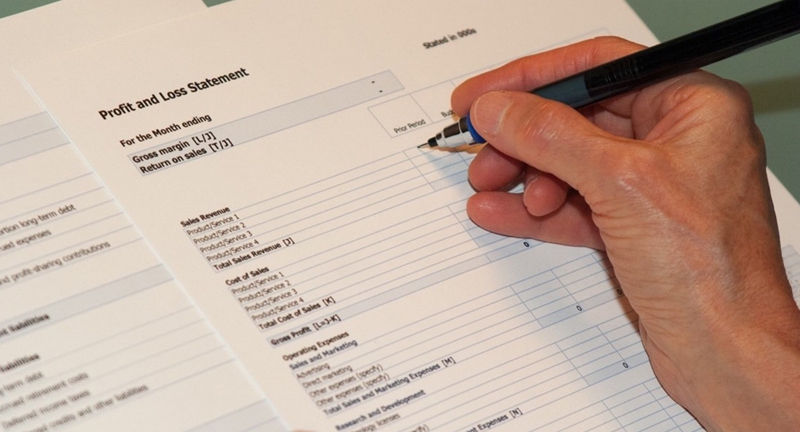Deciphering the Abbreviations and Terms on Your Bank Statements
Posted On: September 15, 2021 by Falcon National Bank in: Manage your Business | Business Banking Your Financial Life | Personal Banking

As more and more banking options are available online, fewer and fewer people choose to receive paper bank statements every month, for businesses or those with multiple bank accounts, however, these statements are important to managing finances.
Unfortunately, these statements are not always simple to read and understand. Some banks tend to include vague, misleading, or complicated information and sometimes even hidden fees. It might even feel like there is a secret banking language that only financial institutions can read. The truth is, these abbreviations all have distinctive meanings–either on your paper statements or your online accounts–that tell you important information about your accounts and transaction history.
Bank Statement Buzzwords and Abbreviations
There can be many abbreviations on your bank statements. Different transactions are categorized to help organize your account and prevent fraudulent charges. Let’s take a look at some of the most common below:
APR: The Annual Percentage Rate of an account over a year
ATM: Automated teller machine transactions
ATM RFD: ATM refunds
BBP or BP: This identifies a bill payment
BAC or BACS: Bankers Automated Clearing Services – make payments directly from one account to another
CDM: Cash Deposit Machine – bill payments or withdrawals completed at a cash machine
CHG: Charge related to a transaction
CHQ: Transactions made using a paper cheque
COR: Transaction error correction
CRE: A Credit added to your account
CSH: Cash deposited into your account
CUI: A check that has failed to clear your account
DWT: Department for Work and Pensions transaction
INT: Credit or debit on your account based on interest
ISA: Individual Savings Account
ITL: International transfers
OTR: Online banking transaction
POS: Point of sale/debit card transactions
REV: A debit returned to your account
SAL: Salary paid (usually in the form of direct deposit)
S/O or STO: Regularly scheduled payment from your account to another account or a third-party app
SBT: Screen-based transaction–a transaction processed on your behalf by your bank
TEL: Telephone banking transaction
TFR: Transfer of funds between accounts
TLR: Teller transactions
If you find a term or transaction on your account that you cannot place or do not understand, it is always a good idea to contact your bank and discuss it. Not only will this help prevent any fraudulent charges, but it can help you with budgeting. You may identify a subscription or service that you no longer use but forgot to close. Or even more troubling, you may find you may be using a product that is not the best fit for your banking needs.
The experts and Falcon National Bank understand that this can be confusing. If you have any questions about your statement, weather you bank with us or not, give us a call.
Learn more about how important it is to understand your monthly statement, it could save you more than a few bucks! #feechallenge

Finacus Solutions | Nov 21st 2023 @ 1:43 AM
Your blog is Clear, concise, and incredibly helpful in unraveling the complexities of banking jargon. A must-read for financial literacy seekers!
Stephen | Dec 4th 2023 @ 2:44 AM
What does "Store_F" represent on my bank statement please
Finacus | Dec 13th 2023 @ 1:33 AM
Your blog is clear explanations of complex terms make understanding financial statements a breeze. Thank you for simplifying this crucial information!
karen dickerman | Jan 15th 2024 @ 5:56 PM
does a minus next to an amount represent the sale or a credit
-
-
View AllFalcon National Bank | Jan 16th 2024 @ 3:14 PM
@Stephen: "Store_F" would be the stores location or "store number".
Falcon National Bank | Jan 16th 2024 @ 3:20 PM
@karen dickerman: if this is on a credit card statement and there is a negative/minus sign next to the balance, that means that the credit card company owes you money. You either overpaid your balance, or made a return etc.